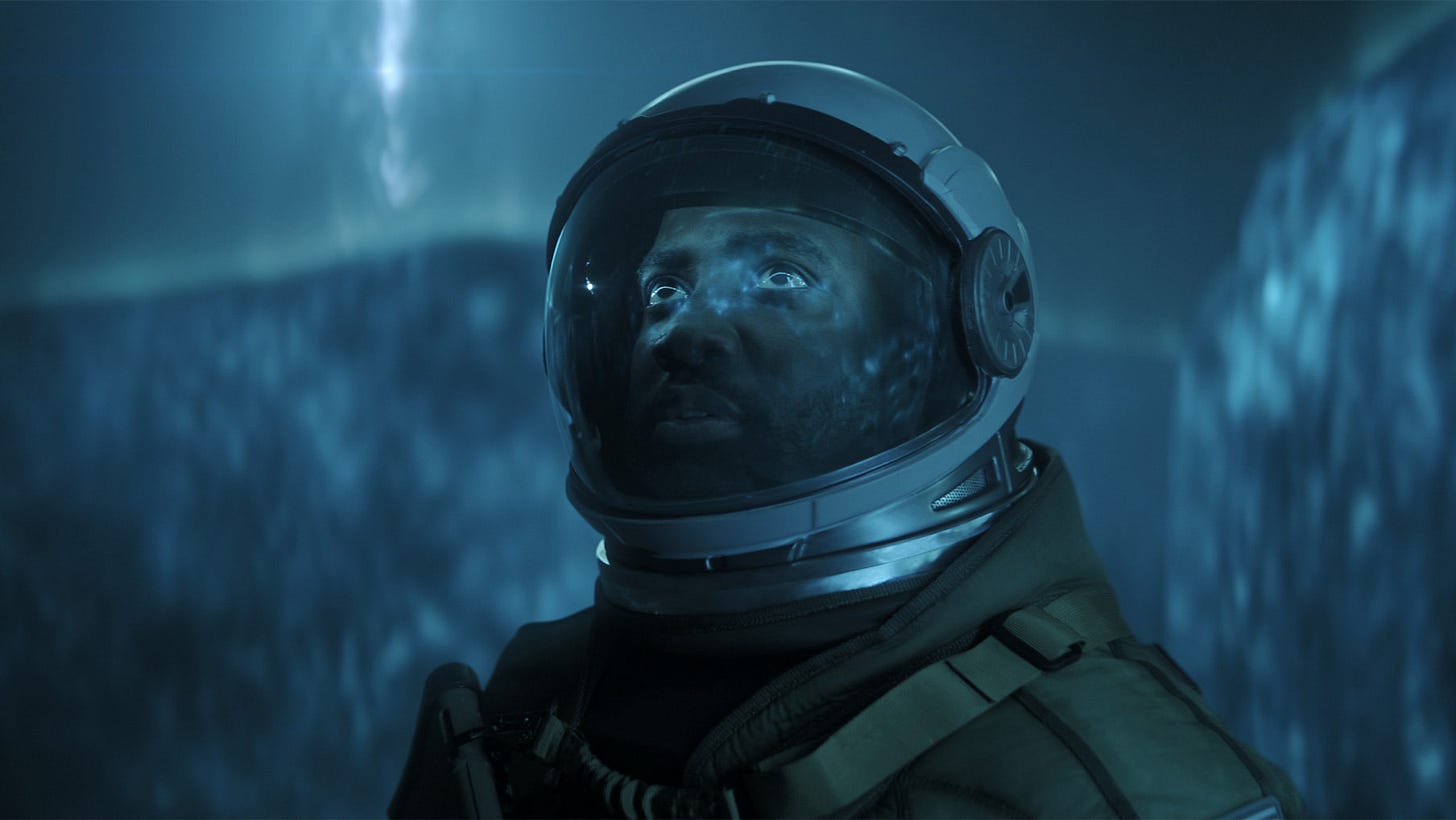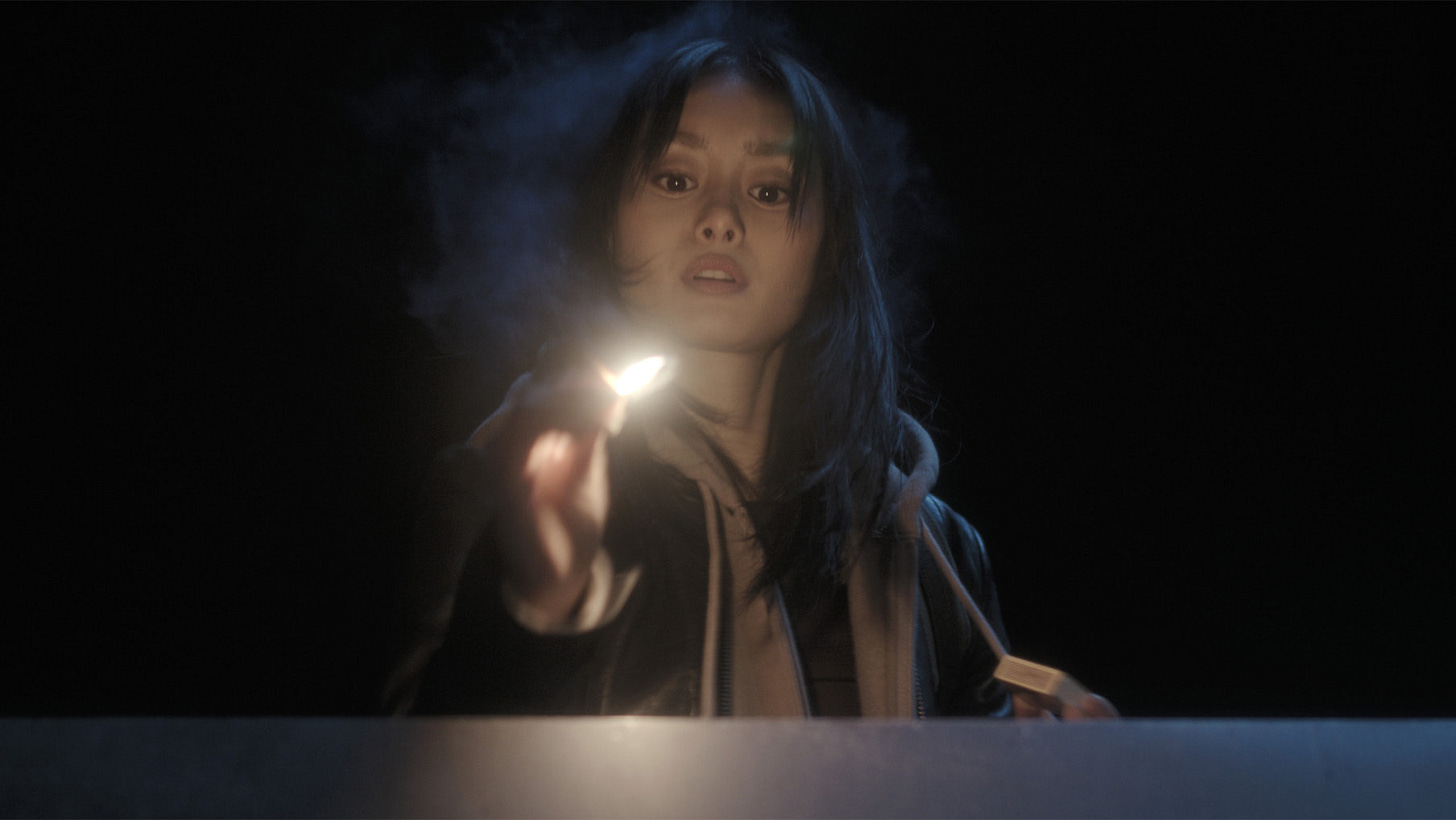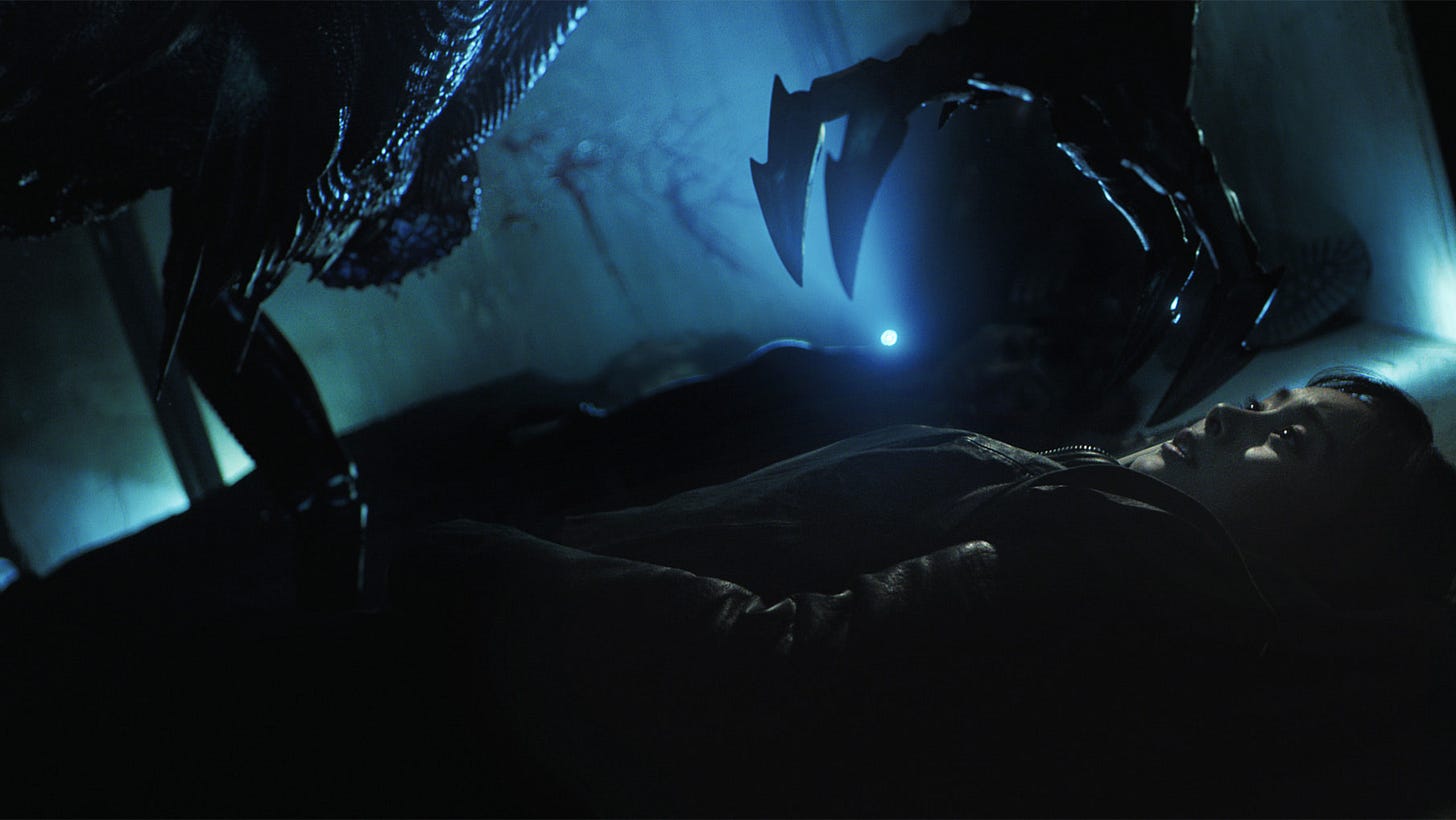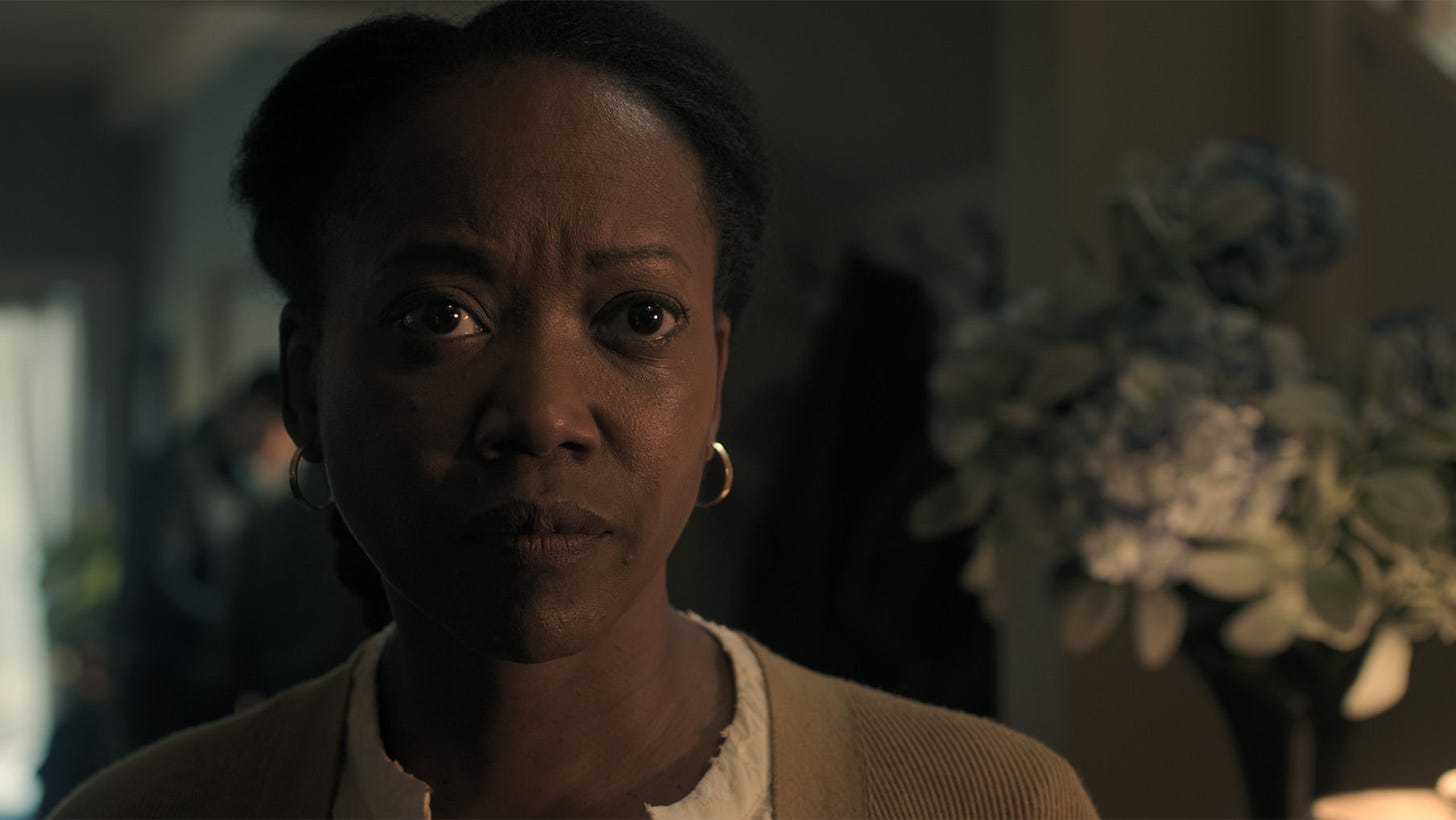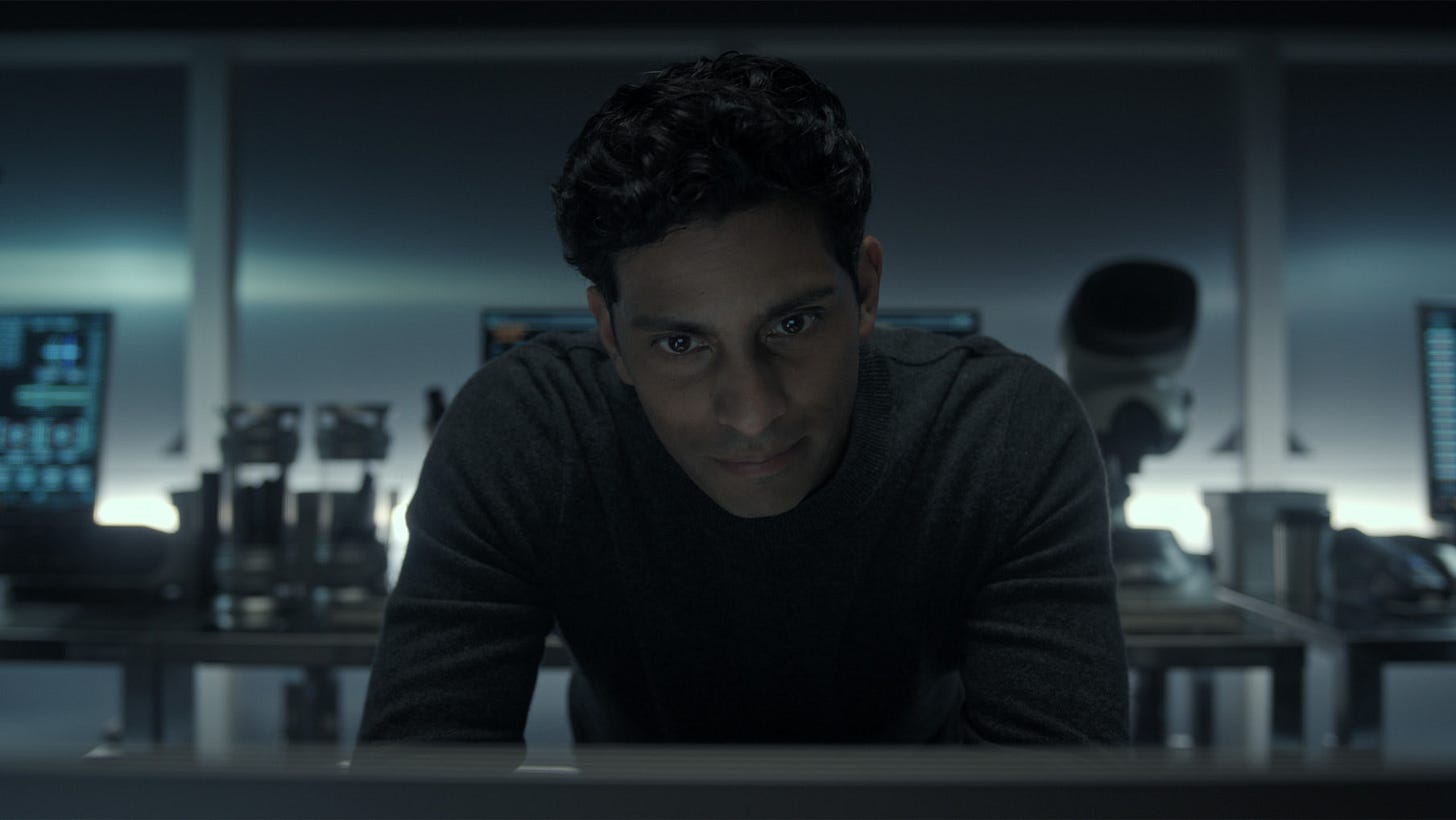Review: 'Invasion' (Season 3)
From creeping dread to tense action, the third season of Apple TV's unique alien invasion show remains on of the best shows in the genre
The question of whether our species is alone in the universe has occupied our minds for hundreds, if not thousands, of years. Looking up at the night sky, even our ancient ancestors began to wonder, and as they did, their pattern-seeking minds spun stories around what they saw: planets, stars, and distant galaxies. These stories became myths, populated by gods, monsters, and visiting beings from other worlds.
As our species matured, this fascination evolved into stories that became the foundation of early science fiction. Perhaps the best-known example is H.G. Wells’s 1897 novel The War of the Worlds, which depicts a brutal invasion of England by bloodthirsty Martians. Wells wrote the story as a cautionary tale about humanity’s hubris, our precarious place in the universe, our brutal exploitation of other living beings, and the evils of colonialism.
While Wells's novel is a landmark, stories of alien visitors and invasions go back much further. A notable example is Lucian of Samosata’s Vera Historia (“A True Story”), from the 2nd century CE. In this satirical tale, the protagonist is taken to the Moon, where he finds himself in the middle of a large-scale interplanetary war between the King of the Moon and the King of the Sun over the right to colonize Venus. The armies in this conflict were composed of bizarre alien beings, such as horse-vultures and salad-winged birds.
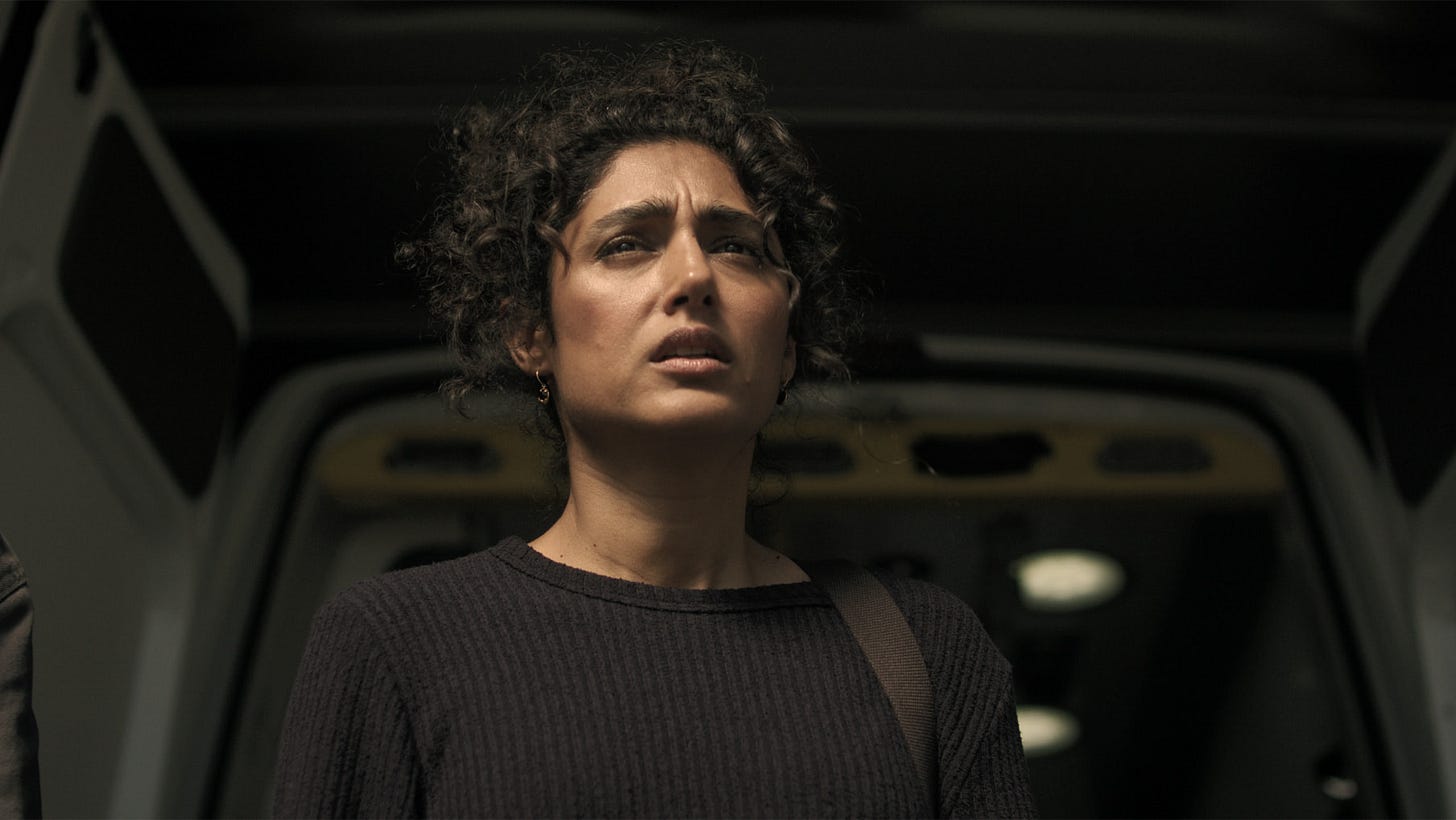
As the media landscape evolved, Wells’s iconic novel, The War of the Worlds, became one of the most frequently adapted in the science fiction genre. The results of these adaptations have been decidedly mixed, ranging from Byron Haskin’s revolutionary 1953 film and Steven Spielberg’s excellent 2005 blockbuster to a myriad of small-budget, often clumsy adaptations appearing yearly on various streaming platforms, including a recent and dreadful version starring Ice Cube.
The influence of Wells also inspired stories not directly tied to his novel. Freed from the constraints of adaptation, whether direct or loose, these works were often more original, examining the concept of a sinister alien invasion from a wide range of perspectives. Notable examples include the 80s series V, with its reptilian humanoids in disguise, and the excellent post-apocalyptic drama Falling Skies, which ran from 2011 to 2015.
This brings us to Apple TV+'s Invasion, which premiered in 2021. Before we continue, please be aware that this review contains heavy spoilers for the show's first two seasons. If you wish to avoid them, you may want to stop reading here.
Created by Simon Kinberg and David Weil, the series distinguishes itself with a global cast and a story that unfolds from multiple, very human perspectives. It favors a slow-burn, less-is-more approach, particularly in its first season, which focused on a creeping, atmospheric dread. Mysterious sightings and strange phenomena hint at a hidden menace long before the aliens or their craft are revealed, building worldwide panic and chaos as the season progresses.
The aliens themselves were first revealed as seemingly unintelligent, protoplasmic blobs that could form sharp pseudopods to stab and slice their victims. But as is often the case in stories like this, a secret hierarchy was soon revealed. With the appearance of what looked like a mothership in the sky, a new class of more dangerous, bio-mechanical hunter-killers began to appear on the ground, signaling a new and deadlier phase of the war.
The show’s global scale is reflected in its sprawling cast. The first season sets the pieces on the board, introducing U.S. Special Forces soldier Trevante Cole (Shamier Anderson) in the Middle East; the brilliant technician Mitsuki Yamato (Shioli Kutsuna) at Japan's space agency; protective mother Aneesha Malik (Golshifteh Farahani) trying to keep her children safe in the U.S.; and a group of British schoolchildren, including the bullied, epileptic Caspar Morrow (Billy Barratt) and his friend Jamila Huston (India Brown), stranded after a crash. A brief but memorable arc featuring Sam Neill as a small-town sheriff on the verge of retirement perfectly establishes the show’s ominous tone in the first episode.
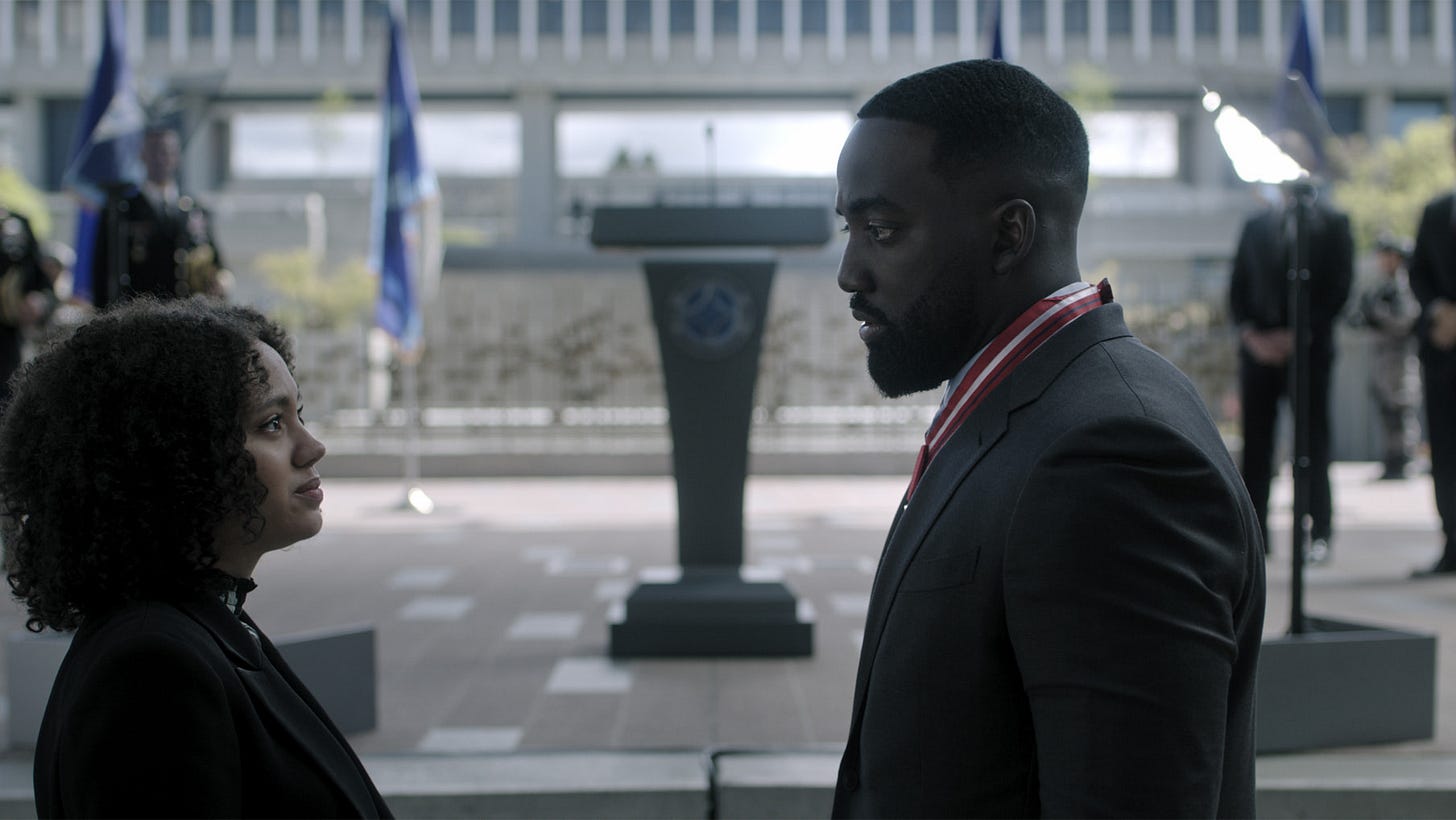
Picking up a few months later, the second season throws us into a full-blown war. Humanity is on the brink of collapse, and the characters’ separate journeys begin to converge. Aneesha, now in possession of a powerful alien artifact, joins a resistance group called “The Movement.” Mitsuki is recruited by the eccentric tech mogul Nikhil Kapoor (Shane Zaza) to communicate with a captured alien consciousness.
Meanwhile, a traumatized Trevante follows the clues in Caspar’s sketchbook, convinced they lead to a weakness in the aliens’ onslaught. The season culminates in a desperate mission, with Mitsuki opening a psychic portal to the alien hive mind, allowing Trevante to help Caspar, who now has a deep connection to the aliens, to launch a direct assault that ends with the boy’s heroic sacrifice and the fall of the alien mothership.
The third season picks up two years after the aliens were seemingly defeated. The now-unified Earth is preparing to celebrate its victory over the invaders. With Caspar dead and Trevante missing since the attack, the nations of the world have come together under a single planetary leadership to stand against further extraterrestrial threats. Outside of the walled-off and heavily guarded “Dead Zone” where the mothership crashed, life has returned to a fragile new normal.
On the eve of the second anniversary of the mothership’s fall, however, several mysterious events begin to take place. People go missing, and a family is attacked by alien entities in their home. Then, one of the many extraterrestrial portals—all heavily guarded by military facilities—opens on its own, and a bruised and battered Trevante emerges with a warning: “It’s not over.”
His warnings go unheeded. The alien menace is gone, or so the people of Earth seem to think, and humanity needs a living hero, not a prophet of doom. It doesn’t take long before Trevante is on the run, finding an ally in Jamila as they desperately search for others who will listen. As if to prove his point, the dormant portals erupt with alien growth, expanding exponentially and confronting humanity with a new, terrifying threat.
The third season largely follows the protagonists’ — now finally assembled in one place — mission to end the alien menace once and for all. This leads them into the Dead Zone and the crashed alien mothership, where new dangers arise. One of these is not alien at all, but a cult of human worshippers who believe that everyone killed by the aliens transcends to a higher plane of existence where they will be reunited with their lost loved ones. As we’re now used to in Invasion, the series takes its time developing these characters, giving them an initial humanity that soon gives way to religious fervor. This sci-fi trope of the “alien fifth columnists” is well known from other stories, but here it works well, even if it is presented a bit heavy-handedly at times.
With this third season, it's clear that showrunners Simon Kinberg and David Weil are playing the long game, crafting one of the most unique and patient shows in the alien invasion subgenre. Even as it grapples with well-worn tropes, the show has felt distinct since its first episode. This is partly because it avoids emulating H.G. Wells, opting instead for its own approach to storytelling.
The series has evolved through distinct phases, each with its own pacing and tone, which may not be for everyone. The first season was the setup—a slow burn of creeping dread that likely tested the patience of viewers accustomed to fast-paced action. The second season was the war—a darker, more desperate chapter with humanity pushed to the brink. Now, this third season is firmly in the action phase, shifting into a more traditional science fiction thriller as its proactive heroes unite on a mission to solve the alien mystery and end the menace once and for all.
Despite this shift in tone, the overall arc of Invasion still feels very planned and thought out by its writers. This is clearly not a case of showrunners Simon Kinberg and David Weil responding to audiences those looking for more action in their science fiction, but rather a story that is planned from the first episode. It is expertly written, with a well-thought-out plot and likeable characters—especially Mitsuki and Trevante—that keep me invested.
Yes, even Shane Zaza’s abrasive and arrogant, Musk-like tech mogul Nikhil Kapoor has his charms, and, perhaps surprisingly, humanity. His performance perfectly channels that unique and sometimes scary blend of genius and hubris, making one ponder with a mix of humor and terror what would happen if a real-life tech billionaire got his hands on a crashed alien ship. We’d probably have a self-driving UFO with an X logo on the side before the end of the month.
To sum up, if you’re a fan of character-driven drama and alien invasion stories, I highly recommend Invasion. The series masterfully evolves from the slow-burn, almost meditative storytelling of its early seasons to the more action-oriented pacing of the third, yet it never falters or loses sight of what makes it unique. For me, it’s the commitment to a patient, human-focused narrative that makes Invasion one of the best and most rewarding shows in the alien invasion subgenre.
The third season of Invasion premieres on Apple TV+ on August 22, 2025.


